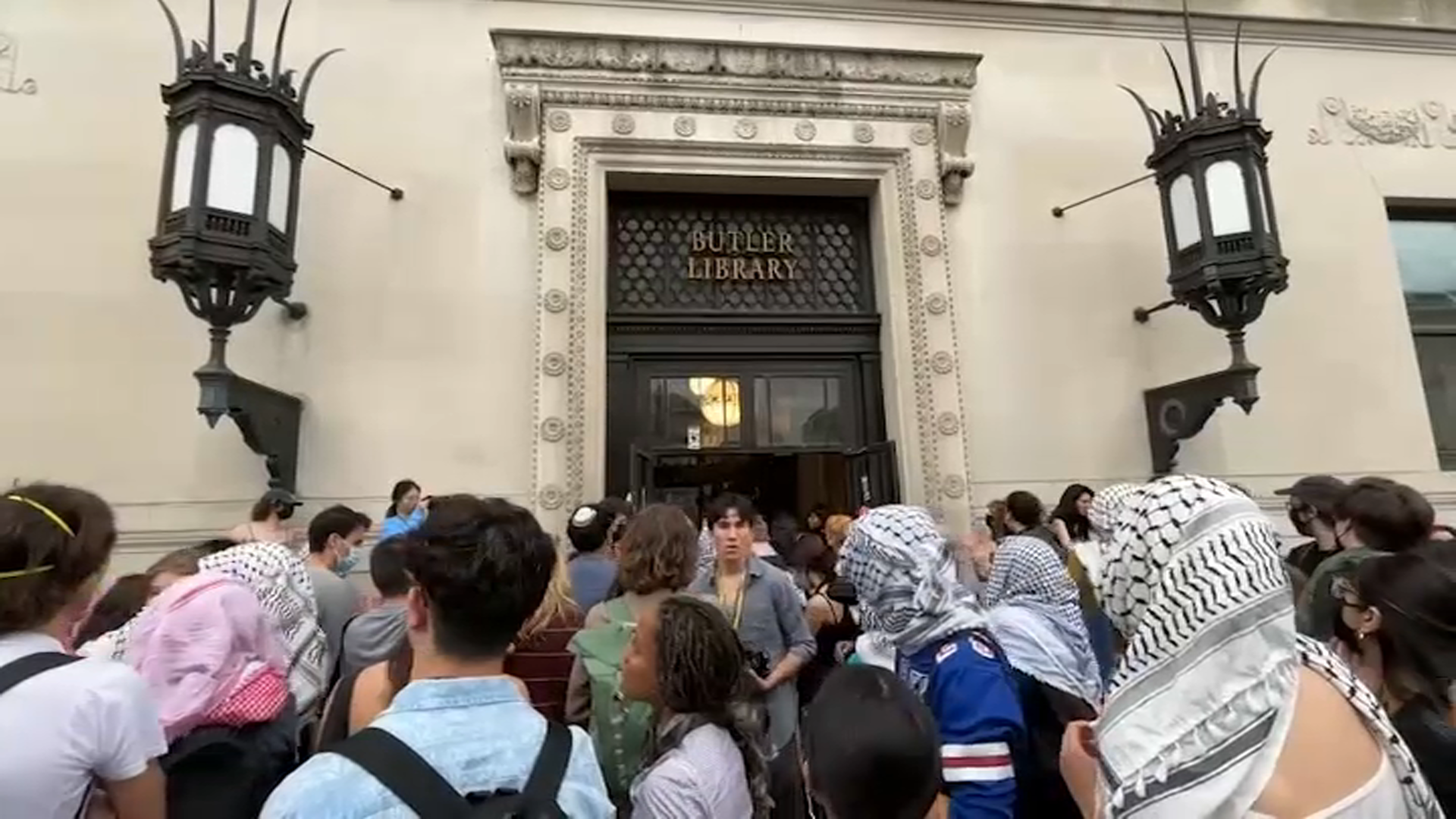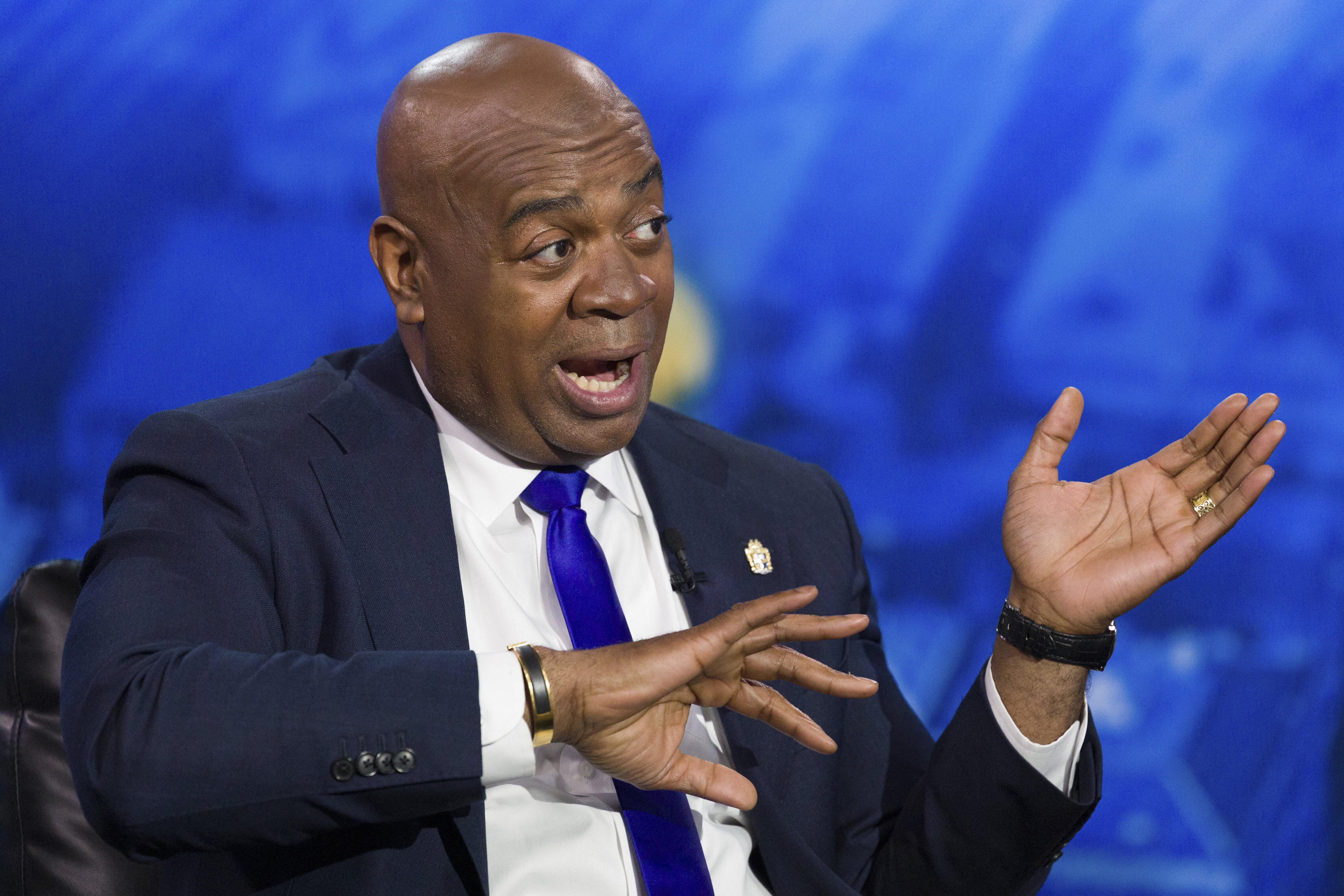Columbia Library Protest: 80 Arrested - What You Need to Know
Columbia Library Lockdown: Pro-Palestinian Protest Leads to Arrests
Introduction: Chaos at Columbia - What Happened at Butler Library?
The hallowed halls of Columbia University, a beacon of academic excellence and intellectual discourse, became the stage for a dramatic showdown this week. Imagine the scene: students, books, and the quiet murmur of research replaced by chanting, banners, and the palpable tension of a protest. Dozens of pro-Palestinian demonstrators, fueled by passion and conviction, stormed Butler Library, holding their ground for hours. Their actions culminated in the arrival of the NYPD and the subsequent arrest of around 80 individuals. This wasn't your average study session, was it?
The Timeline: From Quiet Study to Occupied Territory
Let's break down how this unfolded. The initial reports indicate that the protest began around 4 p.m. in one of Butler Library’s reading rooms. Between 60 and 100 protesters, many concealing their identities with facemasks, entered the building and quickly made their presence known. What started as a demonstration escalated into an occupation, effectively disrupting the library's usual functions and raising significant concerns about safety and order on campus.
Flags, Banners, and Graffiti: The Visual Landscape of Dissent
It wasn't just a sit-in. The protesters transformed the library's ornate reading room into a visual testament to their cause. Palestinian flags were hung from bookshelves, transforming the familiar space into a powerful symbol of solidarity. But the demonstration went beyond mere symbolic gestures. Reports indicate that graffiti, including the chilling phrase "Columbia will burn," was scrawled across framed pictures. These actions, of course, sparked immediate condemnation and raised questions about the boundaries of protest and free speech.
The University's Response: A Call for Dispersal
Columbia University officials didn't stand idly by. The university's Public Safety Team immediately engaged with the protesters, requesting identification and urging them to disperse. A university spokesperson made it clear: failure to comply would result in violations of campus rules and potential arrest. This was a clear indication that the university was prepared to take decisive action to restore order. But none of the protesters heeded the warnings, setting the stage for a more forceful intervention.
NYPD Intervention: The Escalation of Tensions
When peaceful requests were ignored, the university turned to the NYPD. The decision to involve law enforcement is always a delicate one, especially on a university campus. But in this case, the university felt compelled to act to regain control of the library and ensure the safety of the broader community. The arrival of the NYPD marked a significant escalation in the situation, transforming the protest into a legal matter with potentially serious consequences for those involved.
The Arrests: A Summary of the Numbers
By Thursday morning, reports indicated that around 80 protesters were facing charges. This significant number underscores the scale of the demonstration and the seriousness with which the university and the NYPD are treating the incident. The specific charges are pending and will likely depend on the extent of each individual's involvement in the occupation and any alleged acts of vandalism.
Broader Context: Campus Protests and the Israeli-Palestinian Conflict
This protest at Columbia is not an isolated event. It's part of a broader wave of campus activism related to the Israeli-Palestinian conflict. Universities have long been hotbeds of political debate, and this issue is no exception. The occupation of Butler Library reflects the deep passions and strong opinions that students hold on this complex and deeply personal matter. But it also raises questions about how these passions are expressed and the impact they have on the university community.
The Question of Free Speech: Where Do We Draw the Line?
At the heart of this incident lies the fundamental question of free speech. Universities are designed to be spaces where diverse opinions can be expressed and debated. But what happens when that expression crosses the line into disruption, vandalism, or intimidation? The Columbia protest forces us to consider the boundaries of free speech and the responsibility that comes with exercising that right. Is the defacement of university property a legitimate form of protest? Where do we draw the line between expressing a political view and violating the rights of others?
Student Reactions: A Divided Campus?
It's safe to say that the events at Butler Library have sparked a range of reactions among Columbia students. Some may applaud the protesters for taking a stand on an important issue. Others may condemn their actions as disruptive and disrespectful. Still others may feel conflicted, torn between supporting the cause and disapproving of the methods used. The reality is that the campus is likely divided, with students holding a wide range of opinions on the protest and its implications.
Faculty Perspectives: Academic Freedom and Responsibility
Faculty members are also grappling with the events at Butler Library. They are committed to fostering an environment of academic freedom, where students feel empowered to express their views. But they also have a responsibility to uphold university rules and ensure that the learning environment is not disrupted. The protest presents a challenge for faculty, forcing them to balance their commitment to free speech with their responsibility to maintain order and civility.
The Aftermath: Investigations and Repercussions
In the wake of the protest, Columbia University is likely conducting a thorough investigation. The university will need to assess the damage to the library, determine the extent of student involvement, and decide on appropriate disciplinary actions. The consequences for the protesters could range from warnings to suspensions to expulsion, depending on the severity of their actions. The university will also need to address the broader issue of campus activism and how to ensure that protests remain within acceptable bounds.
Security Concerns: Are Libraries Safe Spaces Anymore?
The incident at Butler Library raises serious questions about security on campus. Libraries are traditionally viewed as safe havens for students, places where they can focus on their studies without fear of disruption. But the occupation of Butler Library shattered that sense of security. The university will need to review its security protocols and consider ways to prevent similar incidents from happening in the future. Can libraries remain open to the public while also ensuring the safety of students and staff? This is a difficult balance to strike.
The Role of Social Media: Amplifying the Message (and the Controversy)
Social media played a significant role in amplifying the events at Butler Library. Videos and images of the protest quickly spread online, reaching a global audience. Social media can be a powerful tool for raising awareness about important issues, but it can also fuel controversy and misinformation. In this case, social media likely intensified the debate surrounding the protest, further polarizing opinions and making it more difficult to find common ground.
Looking Ahead: Dialogue and Understanding
Moving forward, it's essential for Columbia University to foster a climate of dialogue and understanding. The Israeli-Palestinian conflict is a complex and emotionally charged issue, and there are no easy answers. The university can play a role in creating spaces where students can engage in respectful conversations, learn from different perspectives, and work towards common ground. This will require a commitment to intellectual humility, empathy, and a willingness to listen to those with whom we disagree.
The Long-Term Impact: A Defining Moment for Columbia?
Will the occupation of Butler Library be a defining moment for Columbia University? It's too early to say for sure. But the incident has undoubtedly left a mark on the campus community. It has raised important questions about free speech, security, and the role of activism in a university setting. How Columbia responds to these questions will shape the university's identity and its reputation for years to come. The challenge is to learn from this experience and create a campus climate that is both intellectually vibrant and respectful of all members of the community.
Conclusion: Key Takeaways from the Columbia Library Protest
The pro-Palestinian protest at Columbia University's Butler Library, culminating in the arrest of approximately 80 individuals, serves as a stark reminder of the tensions surrounding the Israeli-Palestinian conflict and its impact on campus communities. Key takeaways include: the delicate balance between free speech and the disruption of university operations; the necessity for clear and consistent enforcement of campus rules; and the importance of fostering constructive dialogue to address complex and emotionally charged issues. The incident also underscores the need for universities to review their security protocols and ensure the safety of all students and staff. Ultimately, Columbia's response will determine whether this event becomes a point of division or a catalyst for greater understanding and cooperation.
Frequently Asked Questions (FAQ)
-
Q: What specific charges are the protesters facing?
A: The specific charges are still pending but likely include trespassing, disorderly conduct, and potentially vandalism, depending on each individual's involvement.
-
Q: How has Columbia University responded to concerns about freedom of speech in light of the arrests?
A: Columbia has stated its commitment to freedom of speech but emphasized that protests must adhere to university policies and not disrupt normal operations or endanger safety.
-
Q: What measures are being taken to prevent similar incidents in the future?
A: The university is reviewing its security protocols and considering enhanced monitoring and enforcement of campus rules. They are also likely engaging in discussions about appropriate venues and guidelines for protests.
-
Q: Are there any planned forums or discussions to address the issues raised by the protest?
A: While specific plans haven't been announced publicly, it is expected that Columbia will organize forums or discussions to facilitate dialogue and understanding about the Israeli-Palestinian conflict and its impact on the campus community.
-
Q: What resources are available for students who feel affected by the events at Butler Library?
A: Columbia University provides counseling services, support groups, and other resources to help students cope with the emotional impact of the protest and related events. Students are encouraged to reach out to these resources for support.


